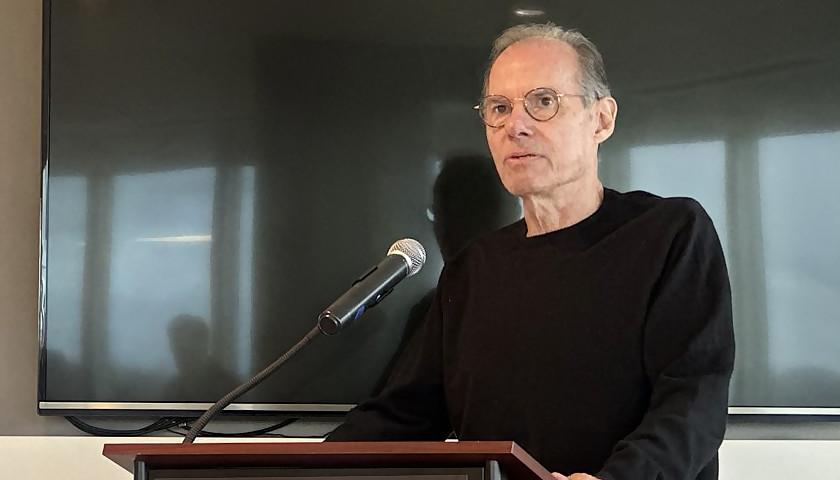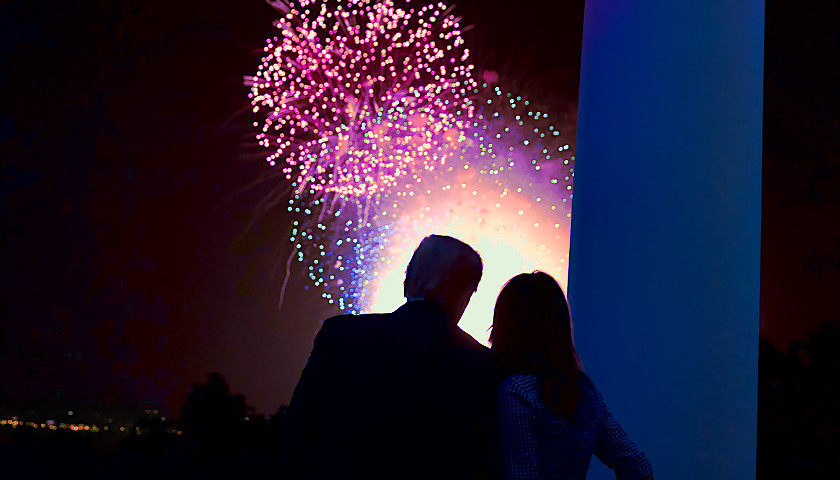by Christopher Roach
The recent arrest of Telegram CEO, Pavel Durov, has been in the news. Anti-Russian westerners cheered these events on, even though Durov had fled Russia years ago in order to pursue his techno-libertarian dreams in peace. Adding to the intrigue, the arrest may have included an element of treachery, as some reports say he was invited to visit France by French President Emmanuel Macron, only to be arrested on the tarmac. Mon Dieu!
The ostensible basis for Durov’s arrest is criminal responsibility for various unsavory things that have happened on his Telegram platform. This kind of vicarious liability for hosting websites, particularly those involving user communications and forums, is not entirely new, but it is controversial and always applied very selectively.
No one has rounded up Mark Zuckerberg, even though snuff films, child pornography, and a great many other terrible things have happened on Facebook. On the other hand, after the Pittsburgh Synagogue shooting in 2018, there was an outcry against the less regulated Gab website, which is a more freewheeling discussion app similar to Twitter. Similarly, the 8chan message board, on which a mass shooter in El Paso posted a mini-manifesto in 2019, faced hosting and other boycotts from service providers leading to a shutdown shortly after the public outcry.
Whether aimed at individual speakers or entire forums, censorship is on the rise, and it finds its roots in a changing set of values. There is less respect for the principles of free speech, especially among younger people. New principles like the evil of “platforming” bad actors and the importance of psychological “safety” prevail.
As these new values have risen in prominence, the internet’s early, libertarian ethos has mostly gone away.
Deep State Gets More “Bang for the Buck” When Pressuring Monopolies
The internet is very much a “winner take all” space. A handful of platforms control 90 percent of the content. For example, Google owns search, while Facebook and its affiliates dominate social media. Twitter, Instagram, and TikTok each command their respective spheres as well.
Subpoenas, periodic haranguing by congressional committees, regulatory crackdowns, and the occasional arrests of company officers enable the government to impose mass censorship through pressure on these key chokepoints of internet traffic.
Consider the European Union’s recent threats against Twitter head, Elon Musk. E.U. Commissioner Thierry Breton recently warned Musk to respect the E.U.’s censorship laws during a then-pending interview with U.S. presidential candidate Donald Trump. Musk, to his credit, declined and exposed the E.U.’s aggressive efforts to control his content through the exercise of extraterritorial jurisdiction completely incompatible with the First Amendment.
Trump-hating retired Lieutenant Colonel Alexander Vindman demonstrated the basic managerial class worldview in a discussion of recent events: “While Durov holds French citizenship, is arrested for violating French law, this has broader implications for other social media, including Twitter. There’s a growing intolerance for platforming disinfo & malign influence & a growing appetite for accountability. Musk should be nervous.”
The system does not like people who speak out against it or contradict its orthodoxies. Just as they cheered Trump’s removal from Twitter, right and left-leaning parts of the American establishment cheered on the eventual arrest of journalist, Julian Assange, for Wikileaks in 2019. Secretary of State, Hillary Clinton, even joked at the time about “droning” him.
I wrote earlier that “[o]ne of the more corrosive developments of recent years is what I would call the ‘Results-Oriented Epistemology of the National Security State.’ For the bloated national security regime, everything is an information operation. There is no truth as such, only what advances the mission or the party line.”
This way of thinking, along with the guilt-by-association theories of liability for Durov and Musk, has no roots in our treasured American traditions of individual responsibility and free speech. Undergirding the First Amendment is a culture of free speech, and the foundation of this culture is a combination of distrust for those in power and humility about our (or anyone’s) ability to arrive at the definitive truth.
Only a belief in one’s absolute possession of the truth would allow competing ideas to be labeled misinformation or disinformation. This is the unspoken premise behind the prevailing ideology of technocratic managerialism, which presupposes that bureaucratic experts comprise a wise leadership class entitled to rule over dumb and easily misled underlings.
Needless to say, this way of thinking is un-American, elitist, and totalitarian in the extreme.
Durov Treated No Better in the West Than “Authoritarian” Russia
In light of recent developments, one must question whether the West is really as free as it imagines itself to be. A few decades ago, it was undeniably more free and dynamic than the Soviet Union, China, and other authoritarian regimes. But lately?
We know American intelligence agencies successfully pressured social media platforms to influence the 2020 election. We know that sui generis prosecutions have been invented to persecute Trump, chiefly because he is a dissident political figure. We know that during COVID, extreme rules were made at every level of government with very little internal resistance, including demands for censorship of discussions well within the mainstream of ordinary scientific debate.
The biggest change, however, has been the rise of self-censorship: almost no one says what he thinks anymore.
Durov left Russia for the same reason he is now being arrested in France. He began his success with the invention of VKontakte (VK), a social media site similar to Facebook. Like Facebook, it became an extremely popular place of discussion, social organization, and occasional political activity.
At the start of the Maidan protests in Ukraine in 2014, the FSB—the Russian equivalent of the FBI—wanted access to user communications and other user data, and Durov was unwilling to provide it. The Russian government very quickly took control of VK, and Durov soon had to sell his shares and flee the country.
He invented the Telegram application from the ground up to be immune from this sort of thing, chiefly through its protocols for encryption and data storage. Essentially, with the “secret chat” feature, the left hand doesn’t know what the right is doing. As currently configured, site administrators cannot provide the kind of data requested by authorities.
The Telegram platform is very important in repressive societies, and it increasingly finds favor among western dissidents. Much of the news about the Ukraine and Gaza war can be found there, unlike the highly curated information appearing on the mainstream western news.
France’s arrest papers accuse Durov of everything under the sun, seeking to lock him up on the theory that he is facilitating criminal misuse of the platform. This is a similar theory of liability for the two life sentences handed to Silk Road founder Ross Ulbricht in American federal court in 2013.
That precedent was unique because it does not appear much of anything lawful was taking place on his Tor-based marketplace. By contrast, the vast majority of Telegram usage appears completely normal and legal, though sometimes controversial, much like the entire internet before 2016.
Sovereignty Matters Even for Jet-Setting “Citizens of the World”
Durov is a billionaire, has citizenship in multiple countries, and he and his staff frequently change locations from Berlin to Dubai and parts in between. But no matter how one imagines himself, one is always under some country’s jurisdiction.
The larger question implicated by Durov’s arrest is whether every internet platform must cooperate with at least one country’s Deep State. Former Russian leader, Dmitry Medvedev, said, “Quite a long time ago, I asked Durov why he did not want to cooperate with law enforcement agencies on serious crimes. ‘This is my principled position,’ he said. ‘Then there will be serious problems in any country,’ I told him.” It appears so.
Avoiding these kinds of “problems” through cooperation seems to have already happened. We know that Elon Musk, for example, works hand-in-glove with the American military-industrial complex in providing Starlink to Ukraine and rockets for NASA. More directly, Facebook assisted the FBI with election interference in 2020, suppressing the Hunter Biden laptop story.
Durov deserves respect for his consistent and principled stand in favor of user privacy, which disallowed cooperation with Russia’s own Deep State. Westerners, at the time, saw this pressure as evidence of Russian backwardness and oppression. Admittedly, Russia is more authoritarian and lacks the liberal tradition of the West. But, if Russia has a uniquely authoritarian approach to free speech, it is hard to reconcile this thesis with the explicit pressure imposed on Facebook and Twitter to influence American elections, the persecution of Julian Assange for simply publishing documents provided to him or the recent arrest of Durov for hosting the types of content that routinely appears on other platforms.
France wants to give Durov the Silk Road treatment, but his platforms—VK and Telegram—are, like Facebook and Twitter, mostly unregulated transmitters of user-created content. No one thinks Google or Facebook should be held responsible for users’ communications to others.
France, either on its own or as an agent of the United States, is now taking the mask off. It turns out that the days of the West consisting of uniquely “open” societies are over, and the new morality, which requires speech to be managed by the well-meaning apparatchiks of a Deep State, is as much alive among the United States and its allies as our competitors in Russia and China.
– – –
Christopher Roach is an adjunct fellow of the Center for American Greatness and an attorney in private practice based in Florida. He is a double graduate of the University of Chicago and has previously been published by The Federalist, Takimag, Chronicles, the Washington Legal Foundation, the Marine Corps Gazette, and the Orlando Sentinel. The views presented are solely his own.
Photo “Telegram CEO Pavel Durov” by Pavel Durov.








